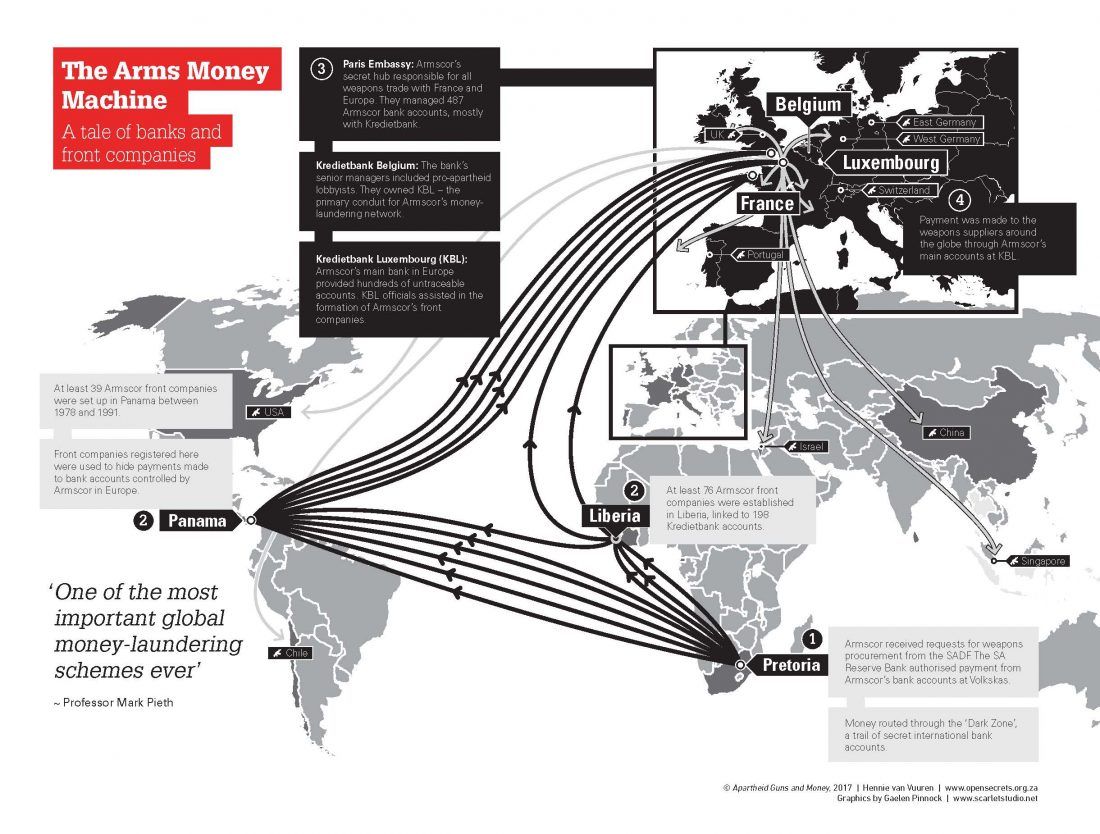Riyaz Patel
Belgium and Luxembourg are refusing to investigate the role of European banks in supporting and profiting from apartheid.
More than a year after submitting a complaint, the Centre for Applied Legal Studies (CALS) based Wits University, in concert with Open Secrets, say they have now been notified that the authorities in Belgium and Luxembourg have dismissed their claim to investigate these economic crimes.
“Belgium’s Kredietbank (now known as KBC Group) and its sister bank in Luxembourg (now known as KBL) are responsible for facilitating illicit money flows that allowed the apartheid regime to secretly buy weapons despite mandatory arms sanctions introduced by the United Nations in the 1970s and 1980s,” their submission read.
“Not only was the banks’ assistance vital to keeping the apartheid government in power, but they also profited from these transactions – building their companies on the suffering of millions of people,” a joint CALS and Open Secrets statement read.

“With no clear reason for their refusal to engage with our complaint, and after providing a response nine months late, we are forced to question the independence and effectiveness of these mechanisms,” the statement continued.
“We believe that those who support and profit from the human rights abuses perpetrated under unjust systems like apartheid should be brought to justice and held accountable for their crimes,” the statement added.
Their complaint, laid with the Organisation for Economic Co-operation and Development (OECD), detailed evidence against two European banks responsible for sustaining and strengthening the system of apartheid.
It said that OECD is one of the only mechanisms available worldwide for holding businesses accountable for their roles in human rights abuses.
“These weapons (acquired though illicit money flows) were essential in enabling domestic repression, the apartheid state’s wars and attempts to destabilize other governments and liberation movements in southern Africa,” it said further.
Apartheid has been declared a crime against humanity by the United Nations.

The process was also undermined by a conflict of interest that was dealt with in a manner contrary to the OECD’s own guidelines, as well as the OECD Secretary General’s recommendations, the two organizations said.
“If the OECD is one of the only mechanisms in the world for holding businesses accountable for human rights violations, we may as well say there is no mechanism in place,” Tumelo Matlwa from CALS said.
“The only logical conclusion to draw is that the OECD is compromised. The action of the OECD has favoured powerful banks and seeks to silence evidence of the human rights abuses they are implicated in,” said Tabitha Paine from Open Secrets.
OECD Watch, a global network of civil society organisations, also expressed disappointment with this process. “We are deeply disappointed that civil society’s concerns over conflicts of interest in this case have not been satisfactorily addressed.
